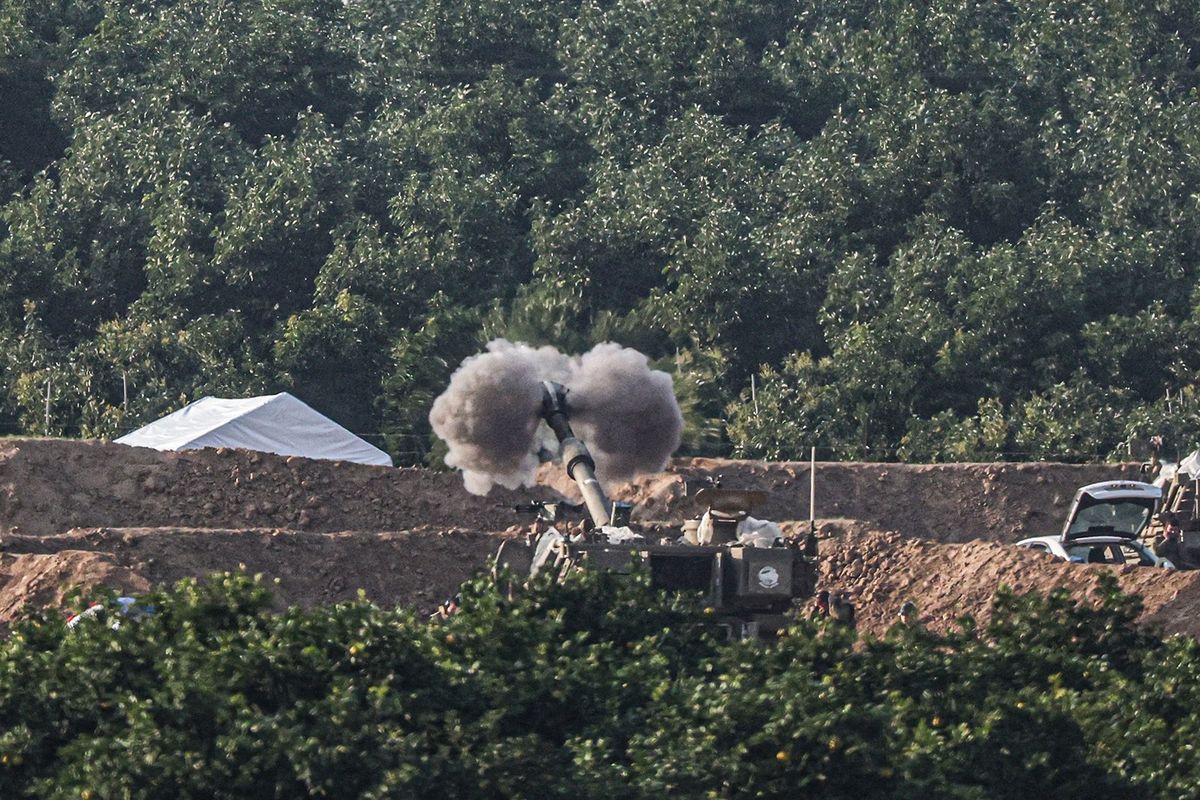Israel’s wider war has U.S. cautioning of ‘strategic defeat’

Israel is expanding military operations into southern Gaza, putting at risk hundreds of thousands of Palestinians escaping the north as U.S. officials grow increasingly uneasy about the war’s toll on civilians.
Southern Gaza was hit by airstrikes overnight, when the Israeli military struck about 200 targets, including weapons depots used by militant group Hamas, designated a terrorist organization by the U.S. and European Union. The attacks came hours after the Israel Defense Forces urged those who fled south to evacuate once again.
The fatalities in Gaza – standing at about 15,900, according to the Hamas-run health ministry – have spurred increasingly vocal and public warnings from top American officials that Israel should be doing more to keep Palestinians safe.
Over the weekend, Secretary of Defense Lloyd Austin and Vice President Kamala Harris both said the civilian cost of the war is too high.
“The lesson is not that you can win in urban warfare by protecting civilians,” Austin said in a speech in California on Saturday. “The lesson is that you can only win in urban warfare by protecting civilians.”
He elaborated: “In this kind of a fight, the center of gravity is the civilian population. And if you drive them into the arms of the enemy, you replace a tactical victory with a strategic defeat.”
Harris weighed in to say that “as Israel pursues its military objectives in Gaza, we believe Israel must do more to protect innocent civilians.”
The president of the International Committee of the Red Cross, Mirjana Spoljaric, also called for greater protection of civilians during a visit to Gaza.
“The level of human suffering is intolerable,” she said in a statement Monday. “It is unacceptable that civilians have no safe place to go in Gaza, and with a military siege in place there is also no adequate humanitarian response currently possible.”
A week-long truce brokered by Qatar, Egypt and the U.S. collapsed on Friday, and the resumption of fighting between Israel and Hamas raises fears of the extent of the ground offensive and the danger the conflict will spread across the Middle East and destabilize the region.
On Monday, Israeli ground forces advanced in several areas of Gaza, accompanied by artillery and airforce. In Gaza City, in the north of the enclave, troops are nearing Al-Ahli Arab hospital and pushing deeper in the south near the city of Khan Younis, according to local media outlets and eye witnesses.
Telecommunications in some areas has been down, slowing the flow of information on the fighting. Paltel, the main Palestinian telecom operator, said its services were offline in Gaza City and northern Gaza Strip.
Red Sea
A continuation of the war in Gaza risks escalation elsewhere. A U.S. Navy ship responded to a flurry of drone and missile attacks against commercial ships operating in the Red Sea, blaming Iran-backed Houthi militants in Yemen.
Privately, Israeli and American officials said they see eye-to-eye on IDF’s main objective to dismantle Hamas. The operation “will be as thorough in the south as it has been in the north” of Gaza, IDF chief of staff Lieutenant General Herzi Halevi said. “It will be as fierce, with no lesser results.”
Other American and Israeli officials said the U.S. isn’t against the operation in southern Gaza, but wants safe zones to limit casualties. Those officials asked not to be identified, citing the sensitivity of the matter.
John Kirby, spokesman for the U.S. National Security Council, also lauded Israel for being mindful of non-combatants’ lives.
“The U.S. has been absolutely clear and unwavering” in its support, said Eylon Levy, a spokesman for the Israeli government. “We are very close to totally destroying two Hamas brigades in northern Gaza and the fighting is going to continue in the south,” he said at a press briefing on Monday.
Many nations have warned Israel not to use the overwhelming force in the south as it did in the north, where it leveled much of Gaza City.
“We are trying to be as surgical as we can be in a very difficult combat situation,” Mark Regev, a senior adviser to Israeli Prime Minister Benjamin Netanyahu, told the BBC on Sunday. He added that casualty estimates from Gaza health authorities “need to be taken with a grain of salt.”
Yet expanding combat in the south is more difficult now because of the displacement of some 1.8 million people, many of whom fled there to avoid the earlier fighting in the north, according to figures by the United Nations.
Much of the displacement in Gaza took place after the IDF began its ground assault roughly a week after Hamas stormed Israeli towns, kibbutzim, army bases and a music festival on Oct. 7, killing 1,200 people, most of whom were civilians. Israel has lost 401 soldiers and 50 police officers during the ensuing fighting, according to the Israeli government.
Skirmishes also continued with Hezbollah, another Iran-backed armed group in Lebanon to Israel’s north. Lieutenant Colonel Jonathan Conricus, an IDF spokesman, said early Monday that Israel is confronting “quite escalatory” actions by Hezbollah on the country’s northern border with Lebanon.
–With assistance from Alisa Odenheimer and Fares Akram.